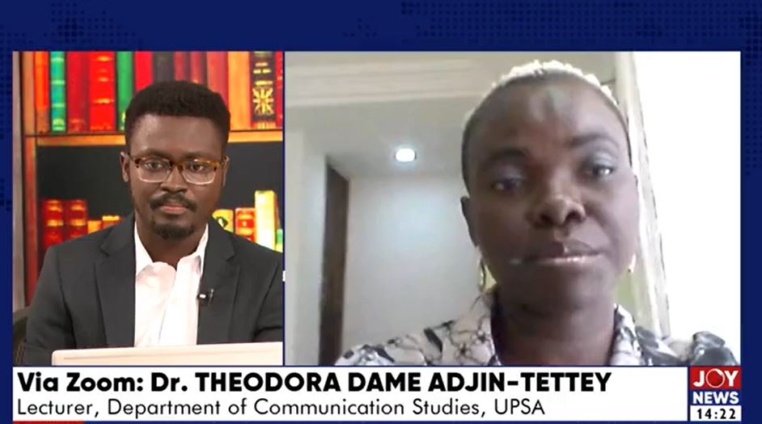
Audio By Carbonatix
A communications lecturer at the University of Ghana (UG) has observed that there are still major impediments to the implementation of the Right to Information (RTI) Law.
Dr Theodora Dame Adjin-Tettey said many public office holders are mostly reluctant in giving out information, even under the RTI Law, because they are glued to the old ways of performing their duties.
She noted that some are still not abreast of their duties under the law so they always frustrate persons who apply for information using the RTI law.
Speaking to Joseph Ackah-Blay on The Law, Dr Adjin-Tettey revealed that many civil society actors have that impression which seems to deter them from making any move in getting information.
This, she believes, destroys the rationale and objectives of the law.
“I spoke to a number of civil society actors; they get the impression that public servants are stuck to their old ways of doing things. You go into an office, you swear an oath of secrecy and confidentiality so those things are really a major impediment to accessing information,” she said on Sunday, September 25.
The opportunity to access information by the public is provided for in Ghana under Article 21(1)(f) of the 1992 Constitution which “guarantees the right to information by all persons, subject to such qualifications and laws as are necessary for a democratic society.”

Despite how succinct the provision is set out to operate, Dr Adjin-Tettey highlighted that other challenges like the unavailability of information officers have restricted access to information in some public institutions.
The RTI law stipulates that where there is no information officer, the head of an institution should be treated as the information officer.
The academic wants some clear-cut criteria to be outlined for public institutions to guide them in the selection of information officers and other persons who aid in access to information.
“It’s one of the things that we found that because there are no information officers, a lot of the time, the process becomes slow.
"Some of the challenges, particularly when it comes to the sub-national agencies like the district assemblies; it’s quite difficult to get information from there because a lot of the time they feel that they need clearance from the headquarters or the main ministry.
“…once the go-ahead is given, then they can give that information but we should also note that if the response from the Ministry says ‘don’t’, then they are likely going to comply with the ‘don’t’.”
Latest Stories
-
Afenyo-Markin criticises gov’t over alleged unfulfilled promises, slogan-driven governance
2 minutes -
Ghana signs landmark MoU for major cashew processing plant to boost value addition and job creation
4 minutes -
Gov’t committed to leveraging technology to improve fire safety – Interior Minister
19 minutes -
Mahama won’t appoint more than 60 ministers – Ayariga
23 minutes -
AU inaugurates committee to drive AfCFTA implementation
26 minutes -
CDD lauds Mahama’s administration for exceptional macroeconomic stability
29 minutes -
Ghana calls for greater inclusion of women, youth in West African leadership
32 minutes -
Ghana, Burkina Faso sign seven agreements to deepen security, economic cooperation
37 minutes -
Seized trucks: Government bans land transit of cooking oil
42 minutes -
U.S. Embassy warns Ghanaian travellers against visa overstays during 2026 World Cup
49 minutes -
Deportation of Chagos Islanders blocked by judge
52 minutes -
We’re in talks with Adeleke’s family to resolve Sophia, Davido custody dispute – Dele Momodu
1 hour -
Rare prison sentences handed to Cameroon soldiers after killing of 21 civilians
1 hour -
CDM declares teacher recruitment crisis a ‘national emergency’
1 hour -
5 bodies of migrants washed ashore in east of Libya’s capital Tripoli, police officer says
1 hour

